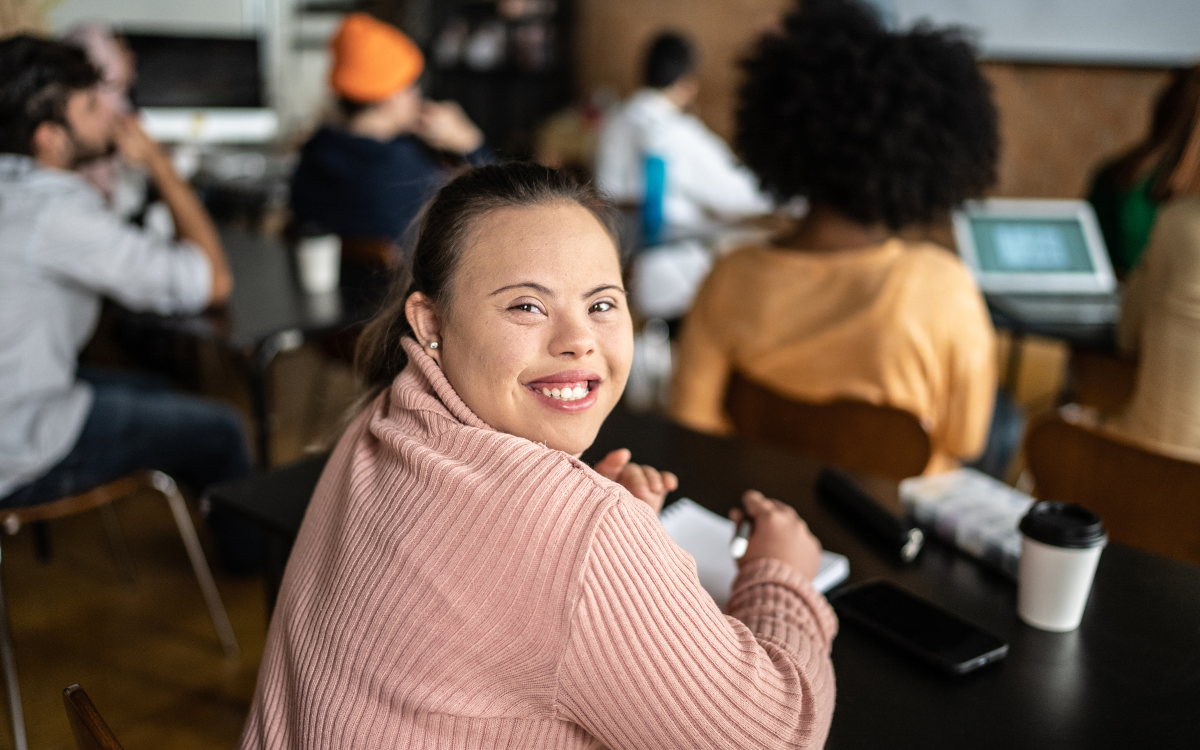Every action and decision we make each day is rooted in a skill. In fact, you’re probably much more skilled than you give yourself credit for. Typing, reading, comprehension – these are just a few examples of basic life skills you likely use to explore the world around you.
Adults with intellectual and developmental disabilities (IDD) can utilize life skills to bolster their independence. For many in the disability community, life skills can be challenging to navigate. But it doesn’t have to be that way.
What Are Life Skills? Why Do They Matter?
A life skill can be any skill an individual needs to participate in everyday life. When we talk about life skills for adults with IDD, though, we’re primarily focusing on core life skills. These relate specifically to how individuals think, learn, and care for themselves daily.
Everyone needs life skills. But for adults with IDD, life skills can represent a lot more than being able to care for oneself. They can inspire confidence, enable individuality, and ensure individuals lead the lives they aspire to.
Key Independent Life Skills for Adults with Disabilities
More potential life skills are out there than we could list at once. Still, some independent life skills stand out as key parts of an adult lifestyle. These core skills can help adults with disabilities advocate for themselves and engage with others.
The ultimate goal is to put as much power in the hands of the individual in question as possible as they navigate daily life.
Communication
Forming social bonds, expressing thoughts and feelings, and sharing experiences are just a few examples of communication skills. What communication looks like can vary. It might be written, verbal, or even portrayed through images, gestures, and eye contact.
Communication is crucial for self-advocacy and self-care. Finding support and reaching out to others is a core part of independent life for many adults with disabilities.
Safety
This skill involves understanding safety precautions and knowing how to respond when safety risks emerge. Emergencies aren’t the only contexts where safety is important, though. Something as simple as safely crossing the street can fall into this category.
Problem-Solving
When things don’t go as planned, or obstacles arise, it’s important to feel able to respond. Problem-solving skills often stem from a knowledge of what other resources and solutions are available. They also require a willingness or ability to try new things and take risks.
Transportation
Navigating the world with ease is something many of us take for granted. Understanding transportation options is an essential life skill – it helps adults access the care and resources they need. It also enables adults to hold steady jobs, visit loved ones, and more.
Personal Care: Hygiene, Cooking, etc.
Caring for oneself is arguably the most fundamental life skill, but it comprises many smaller sub-skills. Shopping, budgeting, cooking, cleaning, and more can all impact how fully an individual can tackle personal care.
Tips for Building the Life Skills You Need
Just like learning to tie your shoe or ride a bike, independent life skills take time and patience to develop. But that doesn’t mean you can’t do anything to help make things easier for yourself or a loved one.
- Practice, practice, practice. As you target a specific life skill, practice will be your best friend. Try, try, try again until things become a little less challenging – sometimes, getting over that initial hump is the hardest part.
- Set clear, specific goals. Know what your goals are and take time to define them. Trying to do too much at once is almost always a recipe for stress.
- Break it down. If one particular goal seems too daunting, try breaking it down. Want to work on financial independence? Start small by managing a regular allowance, then branch out into bigger topics like opening bank accounts.
Use assistive tools and technology. Assistive technologies exist to make life easier. Take advantage of them whenever possible.
Tips for Building the Life Skills You Need
Below are some resources you can use to get started on life skill practice and development.
- The ARC Center for Future Planning: Growing a Strong Social Network (PDF)
A document designed to help adults with intellectual and developmental disabilities grow their social skills and form new relationships.
- Casey Family Programs: Life Skills Guidebook (PDF)
A comprehensive resource on identifying and building life skills for adults with disabilities and their families.
- Learning Works for Kids: Choiceworks (Mobile App)
An app for tablets and mobile devices designed to help users visualize and complete daily routines or tasks. While the app is aimed at children with developmental disabilities, its features may still be useful for adults who enjoy using tech as part of their routine.
- California’s Self-Determination Program (SDP)
A program created by the State of California to connect individuals with disabilities with the resources, services, and support they deserve.
At NeuroNav, we’re here to help you navigate SDP and other disability resources so that you can pursue your goals. Learn more about our services or schedule a free consultation with our team to discover more options for support.

.jpg)


.jpg)